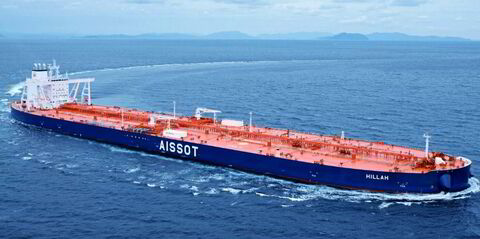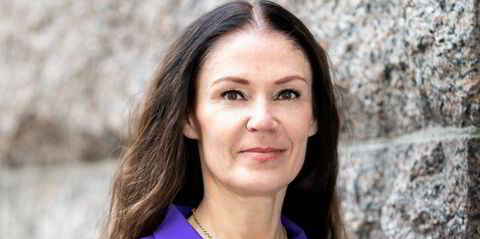New Flex LNG chief executive Jon Cook cut his LNG shipping teeth in the floating storage and regasification unit (FSRU) sector and is keen to see the company move into this business — possibly during this year.
The outfit now has full specifications for the technical design of its FSRU.
“We are ready with the yards once we have confidence in a project,” he said.
Cook says Flex has evaluated the different options from conversions to newbuildings. Chartering FSRUs would likely be more of a bridging solution and would depend on who controls the asset, he explains.
“Currently, our focus is on the newbuilding option,” he said. “We believe the economics are better and there is no conversion risk.”
He explains that while conversions may save a few months, the pricing for newbuilding FSRUs has come down, so there is not a large cost advantage to be gained.
Flex favours the larger FSRUs to dovetail with the increased cargo lots being shipped. Anything smaller would mean additional waiting time for offloading vessels or ships would need to come in partially loaded, Cook explains.
He says Flex has been working with shipyards on a design that could be tweaked from 170,000 cbm to 180,000 cbm and with a regas system based on the company’s learning over the past 10 years.
Cook is hopeful that Flex might move forward on FSRUs this year and says that the company is engaged in several ongoing discussions.
He says Flex is probably not ready to do a pure speculative order on FSRUs at this stage but this might change depending on the project.
Cook believes FSRUs are a good complement to Flex’s LNG carrier business. Typically, the FSRU contracts are longer term while LNG carrier contracts have become shorter durations, he says.
The company also does have some floating regas experience among its personnel. Cook ranks as one of the founders — in 2003 — of floating regasification specialist Excelerate Energy, while, last year, Flex hired Thomas Thorkildsen from one of Excelerate’s close rivals, Hoegh LNG.
Cook says it is important to remember John Fredriksen’s own involvement in FSRUs with Golar LNG — the first company to put an LNG carrier-to-FSRU conversion into operation — and other technical personnel within Fredriksen’s Frontline group who were involved with floating regasification from time spent with Golar.
Flex has also teamed with US liquefaction outfit Next Decade to develop FSRUs and dockside solutions.
The heads of agreement (HOA) between the two companies reunites Cook with Next Decade founder and chairman Kathleen Eisbrenner, with whom he worked for around 10 years setting up Excelerate.
The interest in FSRUs is a reflection of the market being long on LNG for the next few years, with most of the new import capacity being brought onstream using floating regas, Cook says.
“We believe the FSRU market has got a lot of room to grow and we want to be a part of that,” he said.



